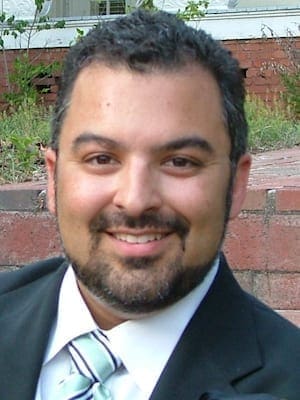Robert Parham noted recently the oddity and the timeliness of God’s message of “peace on earth” to Mary and Joseph during the Christmas season.
He stated that peace was a ridiculous notion back then as it is now, a notion hard-pressed in a human community filled with violence and vitriol, domination and oppression.
That first-century world was one of utter darkness: Rome was in charge, applying financial pressure through high taxes and a military economy.
Not many politicians were friends to families in Nazareth. As one observer of Jesus noted, “What good can come out of Nazareth anyway?” (John 1:46).
And shortly after Jesus was born, during Epiphany, an infuriated Herod commanded the genocide of children throughout Bethlehem (Matthew 2:16-18).
Peace is certainly ridiculous because it assumes that we aspire to be better than this, to lift ourselves above the fray of retaliation and revenge, and seek avenues of justice and forgiveness instead.
After all, we know more than people did back then. Ours is the age of enlightenment, science and technology.
But it is also ridiculous because it assumes we can follow in the footsteps of Jesus: When tortured and sentenced for crimes he did not commit, he forgave his oppressors, forever breaking the cycle of revenge and showing us what true reconciliation looks like.
No amount of science and social media can inspire that kind of peacemaking.
It is, however, that type of peace we Christians are to proclaim on Christmas, or whenever we are together, really. In worship, we model what it means to look to God rather than ourselves.
Our praise and proclamation of gospel is the alternative to a world that is “me first.” In ministry, we surrender ourselves to learn and walk with that Galilean peasant rather than give in to princes who wield power.
In our missions, we practice restorative justice when we declare that all we own is to be shared with the “least of these,” bringing healing to those places still under the thumb of empire and hardship.
God’s peace in Christ was – and is – radically different than the militaristic values that set the tone of violence in Rome. God’s peace in Christ sets a new tone for today too.
Yet, peace has been hard to find this season.
Leading up to the Christmas weekend, there was talk among politicians on Twitter concerning, of all things, nuclear escalation.
When we sang, “Peace on earth, goodwill to men,” in our hymnody this past weekend, there were more than 50 shootings with at least a dozen fatalities in the city of Chicago alone.
Across the nation, there were multiple reports of violence and fighting – and at least one mass shooting threat – in malls, the very places where we purchase gifts for our children to remind them of the gift of Jesus.
Violence erupted in an Aurora, Colorado, mall of all places – a town victimized by a mass shooting some years back. People should know better.
I am not sure how people who celebrate or observe Christmas can become violent, but this seems to play into the narrative that anger in America (or at least the perception of anger, as reflected in the nightly news and in our political rhetoric) is becoming a new norm this year.
Anger can only be tempered with intentional acts of love and kindness, and in the actual testifying to and spreading of the gospel – the Good News – of Christ in our midst.
It was Jesus who walked among angry Roman soldiers who derided, dehumanized and tortured him.
It was in the middle of that kind of storm that Jesus ushered in a silent witness of good news of peace and calm, perhaps the loudest plea for nonviolence anytime in history (Mark 15:16-20).
Civil rights activist Ruby Sales learned long ago that tempering violence may be resolved with asking different questions of those who are angry and to do so right in the midst of violent communities. She learned to ask, “Where does it hurt?”
The church as a whole must learn how to ask this question and listen to the answers. Then we must, in turn, go into the public square and ask that question of neighbors and communities alike.
God came to us as Emmanuel not in places where we ought to be, but where we are – right in the middle of our hurt.
Jesus was born there not to leave us where we are, but to mature us to be vessels of peace who have experienced forgiveness and healing once and for all.
Remember that is was in the Gospel of Mark where a Roman soldier – once angry, but healed at the cross of Christ – who was the first human on record to declare, “This Jesus is indeed the Son of God!”
God’s peace in Jesus was a bold scheme, and I agree with Parham that it does sound ridiculous, especially when we see a different picture painted across our nation on the nightly news.
But if we Christians can’t be the ones to be intentional in sharing God’s love and peace – to ask the hard questions of where it hurts – then who will?
Joe LaGuardia is senior pastor of First Baptist Church in Vero Beach, Florida. He is the author of “Awe and Trembling: Reflections for the Christian Journey,” a book of articles and homilies. A version of this article first appeared on his blog, Baptist Spirituality, and is used with permission.
Joe LaGuardia is senior pastor of First Baptist Church in Vero Beach, Florida.

